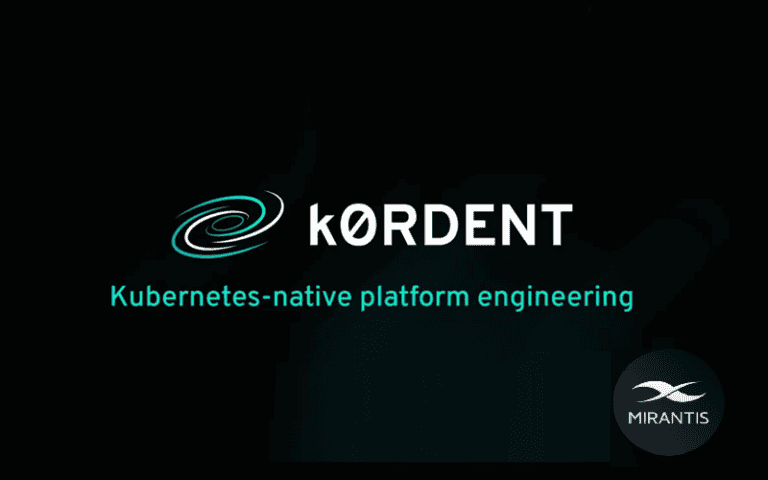Developer velocity isn’t a standard de facto measure of software engineering effectiveness, productivity or efficacy… but if it were, we might suggest the latest project from technology infrastructure company Mirantis is aimed at trying to increase it. The quirkily spelled k0rdent is an open-source Distributed Container Management Environment (DCME) for cloud-native applications. But… in an increasingly Kubernetes-centric world of real-time applications being deployed across different infrastructures, why do we need DCME and what advantages can it bring?
Very much aligned with the new breed of what the enterprise technology space calls platform engineering, k0rdent is engineered to deliver composable Kubernetes-native cluster management on-premises, on public clouds, at the edge. The clue there being the inevitability of distributed software architectures with compute resources spanning all forms of cloud.
If that still doesn’t make sense – and we’re talking about managing Kubernetes clusters on any infrastructure – and that means k0rdent helps platform engineers create customised Internal Developer Platforms (IDPs).
What is an Internal Developer Platform?
As we have explained before an IDP is an internal software engineering tool that acts as an abstraction layer between developers and the systems they interface with.
In other words, an IDP is made up of toolchains and workflows that enable self-service capabilities for developers managing complex deployments (a distributed Kubernetes smorgasbord is a perfect example) to increase developer velocity by reducing key workload tasks, but while still retaining the essential context, constructs and codebase of the underlying technologies.
We digress for clarification and validation, k0rdent architecture is composable so that platform engineers can easily customise it to their specific requirements, and standardised deployment templates are provided to speed implementations.
The appliance of compliance
“Organisations everywhere are experiencing the need to increase developer velocity and reduce time-to-market, while simplifying operations and managing compliance risks – but at the same time have to deal with managing ever-increasing Kubernetes sprawl,” said Randy Bias vice president of open-source strategy and technology at Mirantis. “k0rdent is designed for creating customised internal developer platforms, powered by Kubernetes, that assist in large-scale application management across any infrastructure anywhere, while providing choice, accelerating innovation and enforcing compliance.”
In terms of use, k0rdent simplifies maintenance across cloud service providers and on-premises infrastructure with what Mirantis calls “declarative automation” (the fundamental construct of any declarative model being one that states the desired state of the resulting software, so declarative automation, therefore, being a method of automating tasks by defining the desired end state of a software system, rather than specifying the exact steps to achieve it) as well as centralised policy enforcement.
There are production-ready templates optimised for “modern workloads” (a strange term, given that all current workloads are modern, but which Mirantis is clearly using to perhaps express the need to exhibit massive compute power for big data analytics or AI while also shouldering the possibility of real-time computing) and it uses the open-source Cluster API so that Kubernetes clusters can be created – and existing clusters can be deployed – anywhere.
AWS Elastic Kubernetes Service (EKS)
Testing has been completed on AWS EC2, AWS Elastic Kubernetes Service (EKS), Azure Compute, Azure Kubernetes Service (AKS), vSphere and OpenStack. Also, k0rdent is designed to be easily extended to support new infrastructure providers.
“From the beginning, open-source has been the core of Mirantis’ business and the key to delivering transformative cloud technologies that empower our customers with the flexibility to set their own direction,” said Alex Freedland, CEO, Mirantis. “At a time when software architecture, development tools, and services are becoming increasingly complex, we are sharing the k0rdent open-source project to deliver capabilities that accelerate innovation for modern distributed workloads and put that into the hands of the platform engineering community.”
Mirantis is making k0rdent open for public use and welcomes technologists worldwide to join the project. k0rdent is the latest in a succession of open-source projects recently released by Mirantis, including Rockoon, Blueprint Operator and Blueprint Controller.
